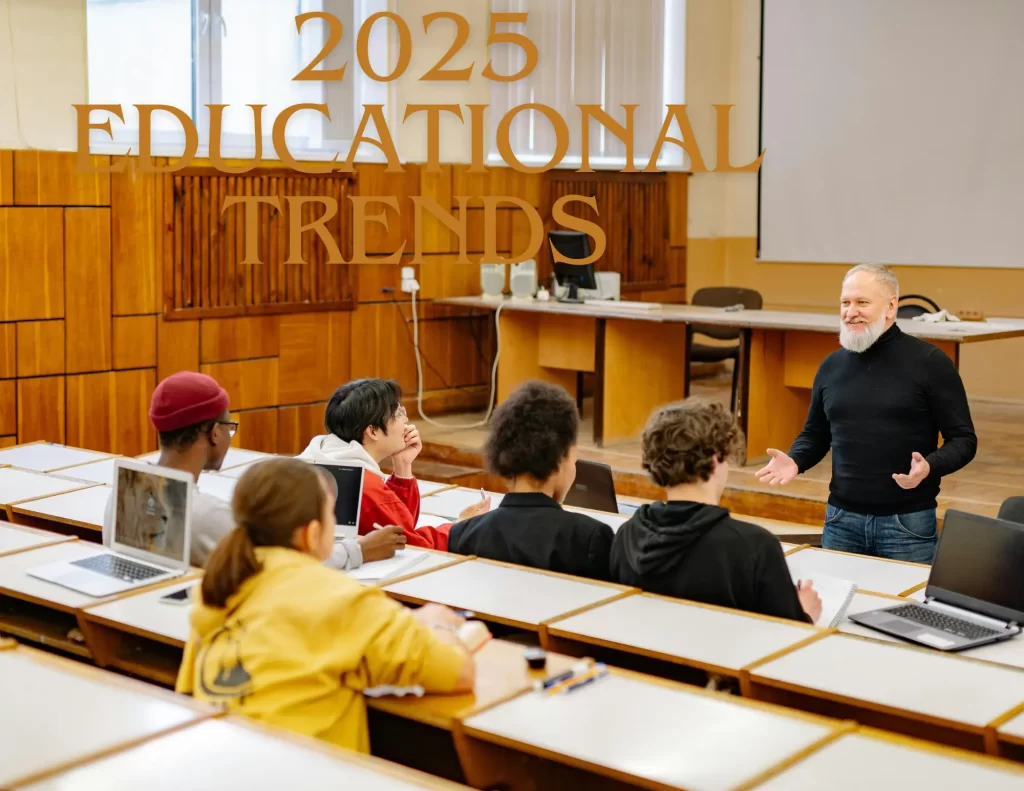The world of education continues to evolve rapidly, driven by advancements in technology, shifts in societal priorities, and an increasing emphasis on innovation. In 2025, educators, students, and researchers have an exciting array of educational trends and research topics to explore. From AI and sustainability to personalized learning, these topics address pressing challenges, improve learning outcomes, and shape the future of education systems worldwide. This article delves into the most impactful educational trends and research topics for 2025, offering insights and recommendations for students, researchers, and educators.
1. Best Topics for Research in 2025
For students and researchers, staying ahead involves focusing on issues that are both relevant and innovative. Here are some top research topics to consider:
- AI and Machine Learning in Education: Explore how artificial intelligence personalizes learning experiences or automates administrative tasks.
- Mental Health in Students: Investigate the role of counseling programs and digital tools in addressing mental health challenges.
- Inclusive Education: Research ways to make learning more accessible for students with disabilities or those from marginalized communities.
- Climate Education: Study the integration of climate change and sustainability topics into school curricula.
- Gamification and Learning: Analyze how game-based approaches improve student engagement and retention.
Example: A student could research “The Impact of AI-Powered Tutoring Systems on Student Performance in Secondary Schools.”
2. How Classroom Design Affects Student Learning
The physical environment plays a significant role in shaping student outcomes, yet it is often overlooked. Research in 2025 highlights how thoughtful classroom design can enhance learning.
Key Insights:
- Lighting: Natural light boosts concentration and reduces eye strain.
- Seating Arrangements: Flexible layouts encourage collaboration and active learning.
- Acoustics: Quiet spaces improve focus, especially for young learners.
- Technology Integration: Smartboards, AR tools, and VR systems make lessons interactive and immersive.
Recommendations for Educators:
- Invest in ergonomic furniture to improve comfort and posture.
- Incorporate greenery to create a calming and inspiring atmosphere.
- Design adaptable spaces that can transition between group work and individual tasks.
Example: Research could explore “The Effects of Flexible Classroom Design on Collaboration Skills in Primary Education.”
3. The Impact of Technology in Education
Technology continues to revolutionize education, and its impact will only deepen in 2025. From artificial intelligence to virtual reality, new tools are transforming how students learn and how teachers teach.
Emerging Trends:
- Adaptive Learning Platforms: AI-driven tools tailor content to each student’s pace and abilities.
- VR and AR in Classrooms: Virtual field trips and augmented reality experiments make abstract concepts tangible.
- Blockchain in Education: Secure credentialing systems verify qualifications and reduce fraud.
- EdTech Startups: Innovative solutions address challenges like teacher shortages and access to resources.
Challenges and Opportunities:
- Bridging the digital divide to ensure equitable access to technology.
- Training teachers to effectively use advanced tools.
- Balancing screen time with traditional learning methods.
Example: Educators could discuss “How AR Is Revolutionizing Science Education by Enhancing Experimental Learning.”
4. Personalized Learning: The Future of Education
Personalized learning is becoming a cornerstone of modern education, allowing students to learn at their own pace and according to their preferences.
Key Elements:
- Use of AI to analyze performance and recommend tailored content.
- Flexible lesson plans accommodating diverse learning styles (visual, auditory, kinesthetic).
- Continuous assessment to identify strengths and weaknesses early.
Benefits for Students and Teachers:
- Higher engagement and motivation among students.
- Improved teacher-student interactions through data-driven insights.
- Better outcomes for students with unique needs.
Example: An educator might research “The Role of AI in Designing Individualized Learning Pathways for High School Students.”
5. The Role of Soft Skills in Modern Education
While technical knowledge is vital, employers are increasingly valuing soft skills such as communication, teamwork, and problem-solving. In 2025, educational systems are placing greater emphasis on cultivating these skills.
Recommendations for Educators:
- Integrate group projects and peer reviews into curricula.
- Use role-playing exercises to teach negotiation and conflict resolution.
- Incorporate real-world scenarios into lesson plans to foster critical thinking.
Example: A school could explore “How Role-Playing Activities Develop Communication Skills in Middle School Students.”
6. Sustainability and Green Education
Sustainability is no longer optional—it’s a necessity. Schools are integrating environmental education into their core curricula to prepare students for a greener future.
Popular Areas of Focus:
- Renewable energy projects for students.
- Waste management and recycling programs in schools.
- Collaboration with environmental organizations for workshops and field trips.
Example: A researcher might investigate “The Effectiveness of Project-Based Learning in Teaching Renewable Energy Concepts to High School Students.”
7. The Evolving Role of Teachers in 2025
As technology reshapes education, the role of teachers is also changing. Teachers are no longer just content deliverers; they are facilitators, mentors, and innovators.
Responsibilities in the Digital Era:
- Guiding students through self-directed learning platforms.
- Addressing digital literacy and online safety.
- Creating inclusive and equitable classrooms in both physical and virtual settings.
Example: A professional development program could explore “Preparing Teachers for Hybrid Learning Models in Post-Pandemic Education.”
Final Thoughts
Education in 2025 is dynamic, tech-driven, and focused on creating holistic learners equipped for future challenges. By staying informed about these trends, educators, researchers, and students can position themselves at the forefront of innovation.
Whether you’re a student planning your next research paper, a teacher designing an interactive classroom, or a policymaker shaping curricula, these topics provide a foundation for impactful learning and discovery.
Embrace the changes and contribute to shaping the future of education!


